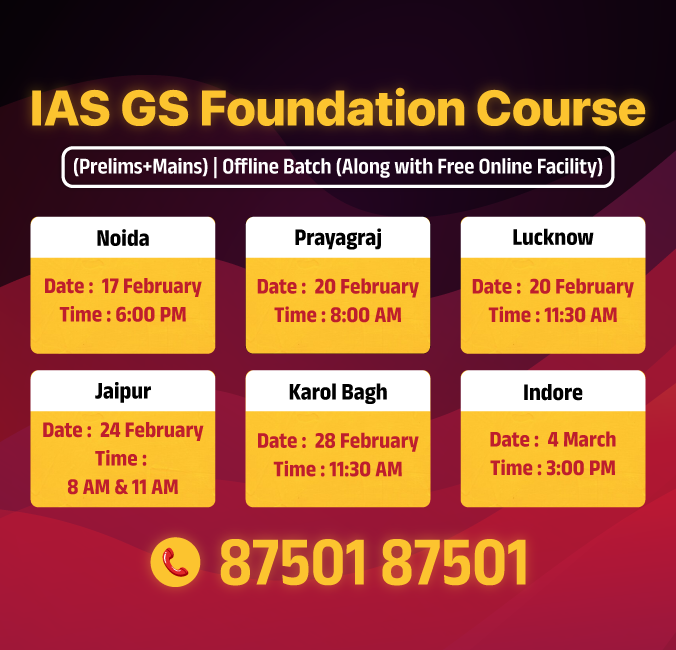Bihar Switch to Hindi
Birth Anniversary of Emperor Ashoka
Why in News?
On the birth anniversary Emperor Ashoka, the Bihar Governor and Chief Minister paid floral tributes at his statue at the Ashoka Convention Center.
Key Points
- About Ashoka:
- Every year the Ashtami of Chaitra month is celebrated as Ashok Jayanti. This time it was celebrated on 5th April 2025.
- Ashoka was the son of Maurya emperor Bindusara . He displayed extraordinary talent in administrative work .
- Impressed by his ability and knowledge, Bindusara appointed him the governor of Ujjain (Avanti) .
- Ashoka fought only one major war , the Kalinga War , which is mentioned in his 13th major rock edict .
- He fought this war in the eighth year of his reign (261 BC) . Ashoka was deeply saddened by the destruction and bloodshed in this war, due to which his personality changed from a warrior to a saint .
- As a result, he abandoned the policy of Digvijaya and adopted the policy of Dhammavijaya .
- Ashoka's Dhamma:
- After conversion to Buddhism, he remained a simple worshipper for about two and a half years . After that, he joined the Buddhist Sangha and became a Bhikshu Gatika (those who live in a monastery for a limited time are called Bhikshu Gatika).
- Ashoka never fully adopted the life of a Buddhist monk , but rather he always remained a worshipper .
- Definition of Dhamma:
- Ashoka has presented the definition of Dhamma in his second and seventh pillar inscriptions .
- According to him, Dhamma includes the following principles:
- No human being will be killed .
- There will be no destruction of property .
- Service and respect for parents and elders .
- Respect for elders and teachers .
- Good treatment of slaves and servants .
- Spend less and live a simple life .
- In the 13th major rock edict, Ashoka has described Dhammavijaya as the greatest victory. He was the first ruler in world history who adopted the Dhamma based imperialist policy through non-violence.
- For the propagation of Dhamma, Ashoka created a new administrative category which was called 'Dhammamahamatra' .
- In the fifth major inscription, Ashoka has mentioned that these officers were appointed in the 13th year of the reign (256 BC).
- Apart from this, other officers like Yukta , Rajukka , and Pradeshik were also given the responsibility of propagating the principles of Dhamma .






%20MPPCS%202025%20Desktop%20E.jpg)
%20MPPCS%202025%20Mobile%20E%20(1).jpg)






.png)
.png)











 PCS Parikshan
PCS Parikshan

